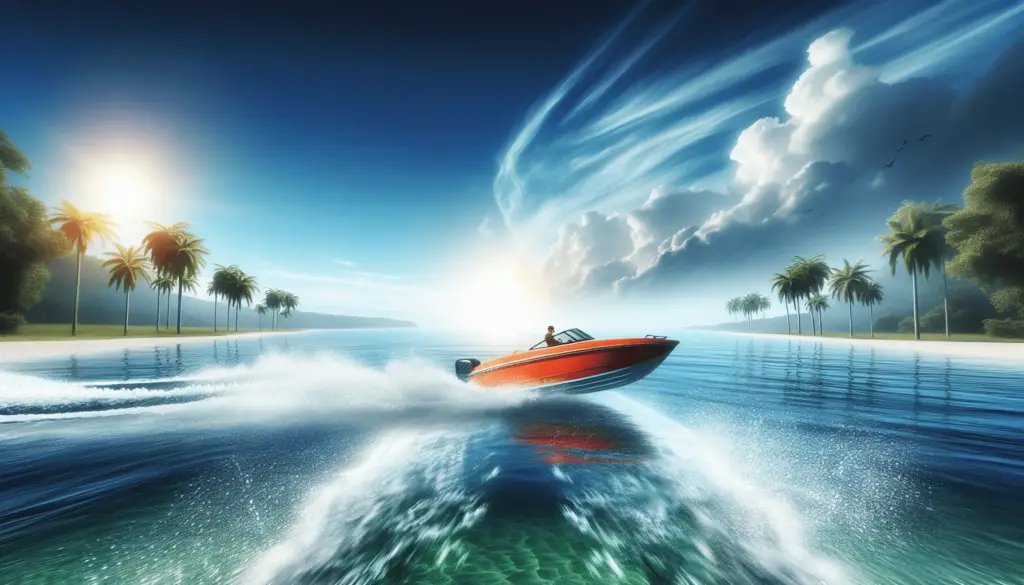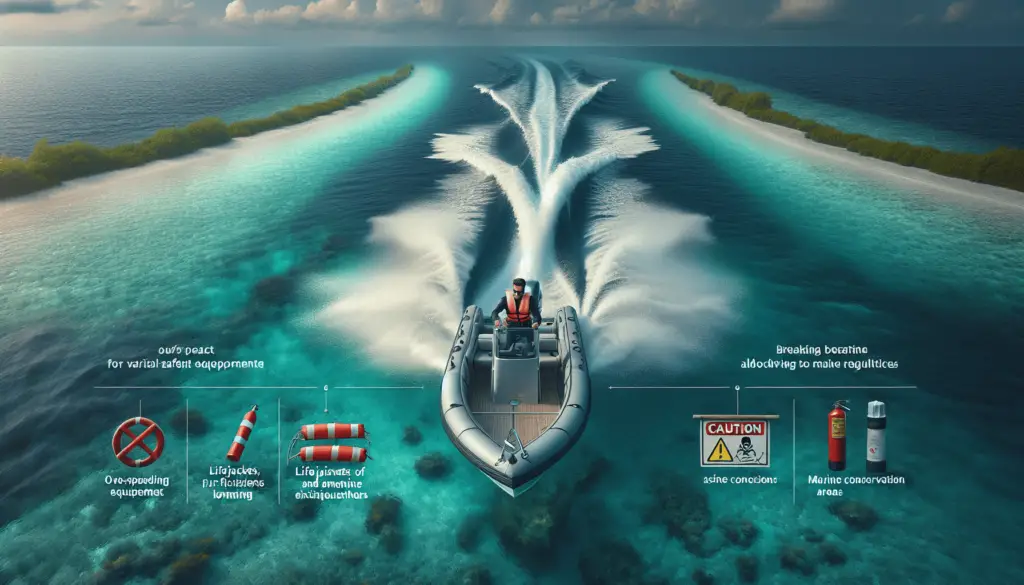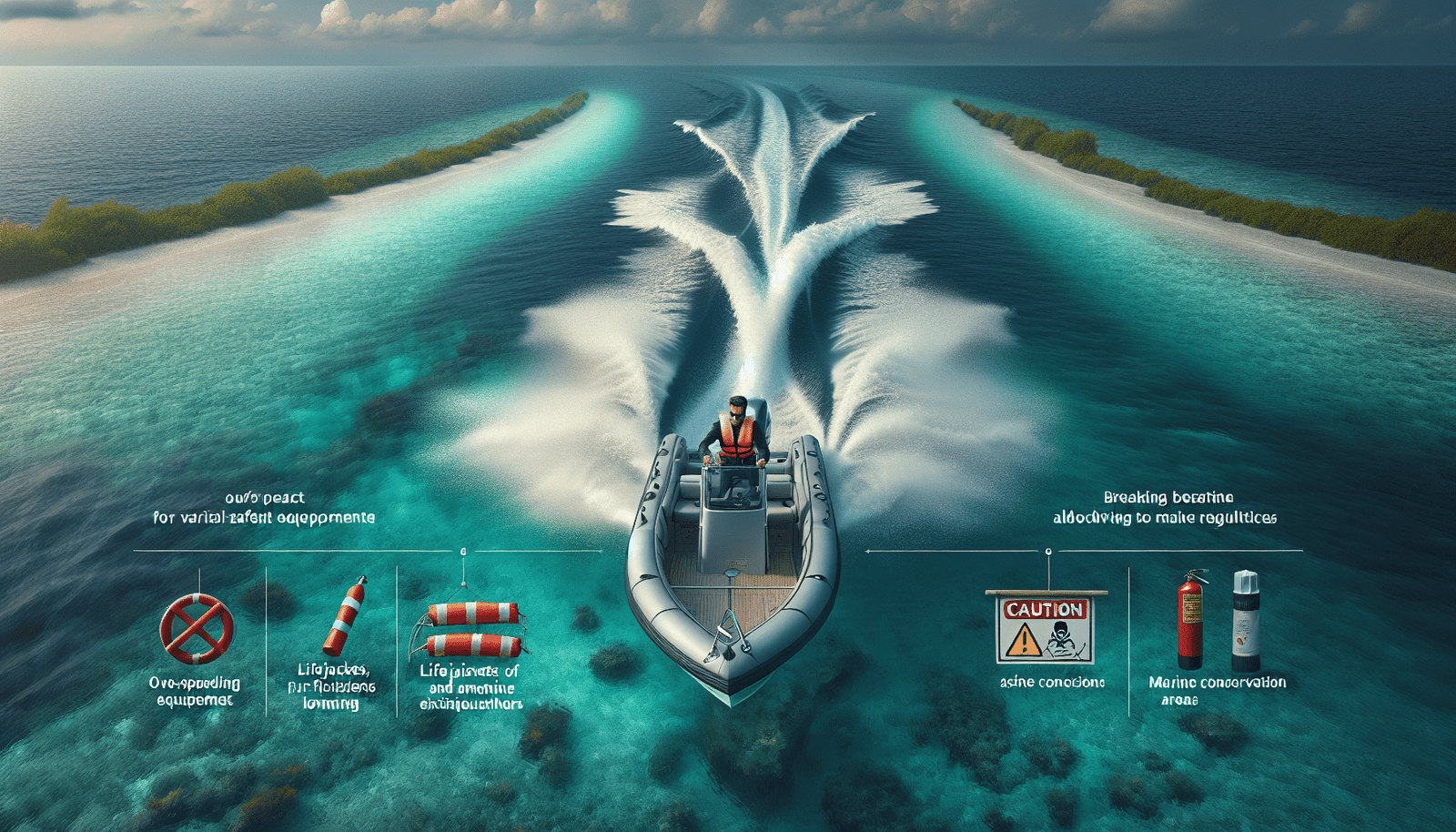Picture yourself cruising the open water, the salty sea spray lightly misting your face, a calm breeze riffling your hair, the sun warming your skin. Blissful, isn’t it? However, this idyllic escape can quickly dissolve into a scene of consternation if you’re not keen on your adherence to boating regulations. A disregard for rules, inadvertent perhaps, can lead to infractions and thus, mar your maritime adventure. “Most Popular Boating Regulations Infractions,” is a deep exploration into those all-too-common infractions, lending you insights and prompting caution for a safer, smoother sailing experience. Buckle up as you prepare to navigate through the sea of information we have on these oceanic oversights.
Exceeding Speed Limits
Speed on the water is not just about getting from point A to B in minimal time. It is also about the safety of yourself, your passengers, and the wake you leave behind. There’s a thrill associated with the wind in your hair and the roar of a motor, but that thrill must be guided by prudent judgement.
Dangers associated with speeding
There’s no denying the fact that speed has a rush to it, but it also ushers in considerable risks. High speed diminishes your reaction time, making it difficult to avoid an unexpected obstacle or adjust to sudden changes. Often, these split-second decisions mean the difference between serene boating and an unspeakable tragedy.
Potential penalties and consequences
Exceeding speed limits on water is just as serious as on roads. Legislations vary from place to place, but hefty fines, mandatory boater safety courses, and even license suspension or revocation could follow depending upon the severity of the infraction.
Impact on marine life and ecosystems
The speed of your boat molds the intensity and range of your wake. This can cause serious problems for marine life, especially in shallow areas, where wakes can backlash onto the shoreline, leading to erosion and negatively impacting habitats.
How to safely monitor your speed while boating
Safely monitoring your speed while boating starts with a keen understanding of the local speed limit laws and restrictions. Use of proper navigational equipment, maintaining alertness, and regularly checking your speed gauge can be effective measures.
Usage of Safety Equipment
Don’t consider your safety equipment as mere adornment; they are your lifelines at sea. The water is relentless, and you must be prepared.
Non-compliance with safety equipment requirements
Sadly, non-compliance with safety equipment requirements is a common infraction. Many a times, this ignorance stems not from outright rejection but rather unfamiliarity with what exactly is required.
Importance and function of different safety equipment
Safety equipment, such as lifejackets, inventories, safety harnesses, communicate with other vessels and navigate safely. More importantly, they maximize your opportunity for survival if things go awry, helping you to combat the elements instead of surrendering to them.
Consequences of not having or using mandatory safety equipment
Apart from the initial risk placed on personal safety, failure to properly equip your boat can mean fines, revoked permissions, or even imprisonment. Furthermore, insurance policies often require strict adherence to safety regulations, so a violation might cause your cover to be voided,
Understanding legal requirements for safety gear
Understanding legal requirements is crucial. Familiarize yourself with what’s required for different boat types & sizes and varying locations, as the rules might change accordingly.

Boating Under the Influence (BUI)
Steering through water under the influence is a dangerous labyrinth almost impossible to navigate. Nearly half of all boating accidents involve alcohol or drugs, making BUI a key concern.
Definition of Boating Under the Influence
Boating Under the Influence (BUI) involves the operation of any type of boat while under the influence of alcohol or drugs, including prescription and non-prescription drugs.
Risks and hazards of BUI
The risks include reduced motor control, impaired judgment, poor coordination, and increased fatigue. Your reaction time slows down, leaving you vulnerable to accidents.
Legal consequences and potential penalties
The severity of these penalties depends on the jurisdiction, but they may include fines, jail time, boating license suspension, and mandatory completion of a boating safety course.
Preventing BUI incidents
Prevention is simple: don’t drink and operate any vessel. Designating a sober driver, carrying non-alcoholic beverages, staying hydrated, and consuming food might also help.
Failure to Have a Boating License
Just like your automobile, your boat requires a license for operation. The only difference is that the water waves are far less forgiving than the asphalt.
Requirements for obtaining a boating license
The requirements to get a boating license vary by region but may include a minimum age, passing a boating safety course, and paying a fee. Some areas require only adults to have one, while in others even teens need them.
Potential penalties for boating without a license
In addition to being dangerous, boating without a license can result in penalties such as fines, mandatory safety classes, and, in extreme cases, boat confiscation.
Understanding exemptions and special circumstances
Some areas provide exemptions for certain types of watercraft, for boaters of a certain age, or for those visiting from other locations. It’s important to understand these exemptions and act accordingly.
Steps to acquire a boating license
These often include enrolling in a boating course, passing the exam, and applying for a license with the appropriate bodies.

Improper Anchoring
Anchoring is a fundamental skill, as essential as breathing in the maritime realm. Its significance is underscored by sensitive ecosystems beneath the water waves.
Understanding proper anchoring techniques
Anchoring requires several considerations—water depth, bottom type, and the weight of your vessel. The right techniques can make the difference between a secure hold and an anchor that’s dragged along the bottom.
Effects of improper anchoring on the seabed and wildlife
An anchor that’s dragged can destroy coral, disturb fish habitats, and cause severe damage to delicate seabed communities.
Regulations surrounding anchoring zones
Rules can differ by locations. For example, some areas require a permit to anchor, while others have designated zones where anchoring is forbidden.
Penalties for infringing anchoring regulations
Penalties may range from fines to permission revocation. However, the greatest penalty might be the loss of fragile ecosystems.
Wildlife Interaction Violations
Whether it is a pod of playful dolphins or a solitary gull catching the wind, wildlife encounters can be exhilarating. However, remember, you are the visitor in their home.
Legal obligations when encountering wildlife
These can vary, but most areas require a certain distance to be maintained and prohibit feeding or disturbing wildlife in any way.
Potential consequences and fines for violations
Violations can result in fines and legal action, and potentially lead to the closure of certain areas to boaters.
Impact of misconduct on wildlife and ecosystems
Actions like approaching too closely or feeding animals can disturb their normal behavior and have serious consequences for individuals and entire species.
Promoting respectful and responsible wildlife viewing
Responsible wildlife viewing involves maintaining distance, keeping noise levels down, and respecting nesting and breeding seasons.
Failure to Display Proper Lighting
On water, lights are your language and your guidance. Proper lighting configurations help you communicate with other vessels and navigate safely.
Explanation of required lighting configurations
Basic lighting requirements include an all-round white light, red and green side lights, and a stern light. However, additional requirements might be needed for specific vessel sizes and types.
Importance of adequate lighting for safety and navigation
Poor or improper lighting can lead to confusion, causing accidents and collisions. Lights also aid in making sure other vessels see you in time to react, especially in limited visibility conditions.
Potential penalties for non-compliant lighting
Failure to comply with lighting regulations can result in fines, license suspension and, in some cases, criminal charges.
Understanding how to properly implement lighting
Understanding and implementing proper lighting starts with knowing your craft. Be aware of your local requirements and regularly inspect lighting systems for functionality.
Littering and Pollution Offences
Clean waterways are the lifeblood of all aquatic ecosystems. Littering and polluting doesn’t just spoil the view; they damage and destroy life beneath the waves.
Consequences of littering and polluting waterways
The impact of littering and pollution is detrimental to water quality, aquatic life, and water-based recreational activities.
Legal obligations and potential penalties
Laws governing littering and pollution offences carry stiff penalties including fines, community service, or even jail time in severe cases.
Impact on wildlife and the environment
From entanglement to ingestion, litter threatens wildlife at every turn. Moreover, pollution alters water chemistry, threatening the very existence of aquatic ecosystems.
Promoting pollution prevention and litter management
Prevention starts with you. Carry a trash bag, dispose of trash properly, participate in clean-up initiatives, and encourage others to do the same.
Inaccurate or Incomplete Registration
Requirements for boat registration and documentation
Just as motor vehicles require registration and documentation, so do boats. Requirements often include proof of ownership, a description of the boat, and an application fee.
Risks and consequences of non-compliant registration
Failure to properly register your boat can mean fines and, in some cases, impounding of the vehicle.
Understanding the registration process
Come prepared with all the necessary documents, be thorough during the process, and make sure to retain copies of all registration documents.
Keeping registration up to date
Just as you’d do with your car, regularly update your boat’s registration. Many areas require renewal every year or every few years.
Non-observance of Navigation Rules
Navigation rules are not merely formalities; they are the oil that smoothens the machinery of maritime traffic.
Understanding basic boating navigation rules
These rules can be complex, but at their core, they’re designed to prevent collisions and maintain safe operations at sea.
Potential outcomes of violations
Violations can lead to collisions, injuries, and even loss of life. They can also result in fines, license suspension, and possible criminal charges.
Importance of these rules for safety and congestion
These rules harmonize the movements of multiple vessels, minimize confusion, and ensure safety at sea.
Education on compliant boating behavior
Many boating course and maritime institutes provide thorough education on this topic. Knowledge, awareness, and practice are the triad of navigation rules compliance.

